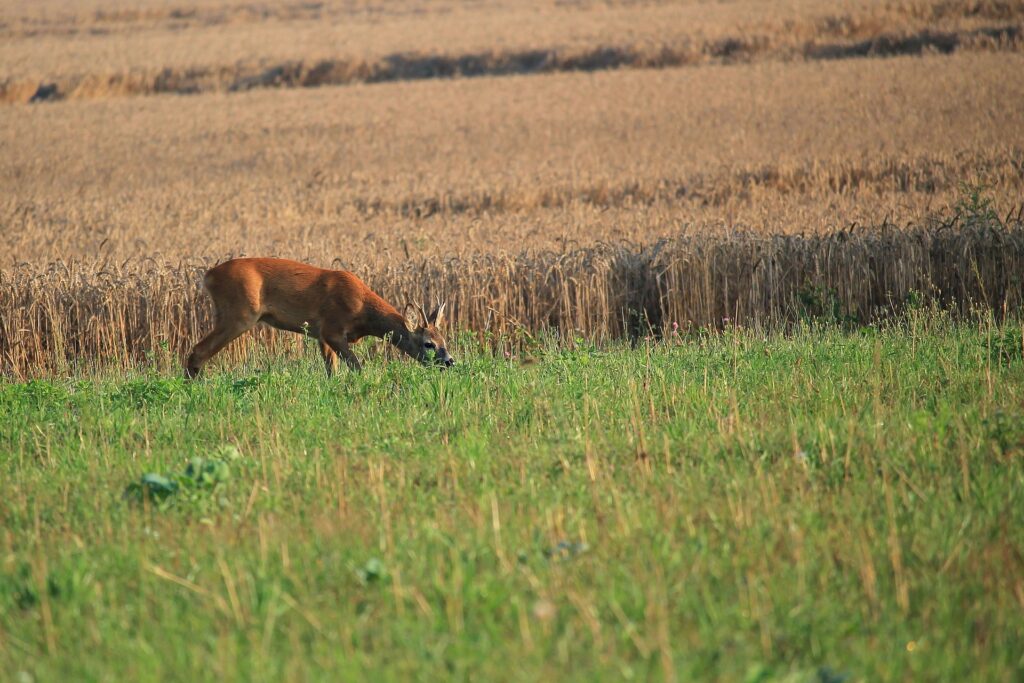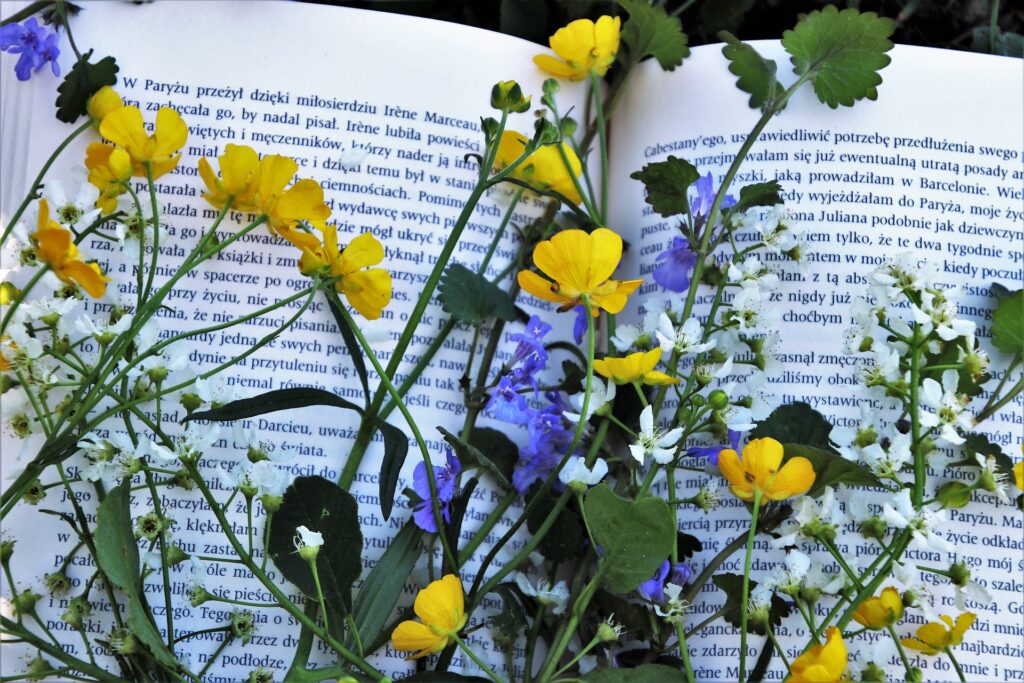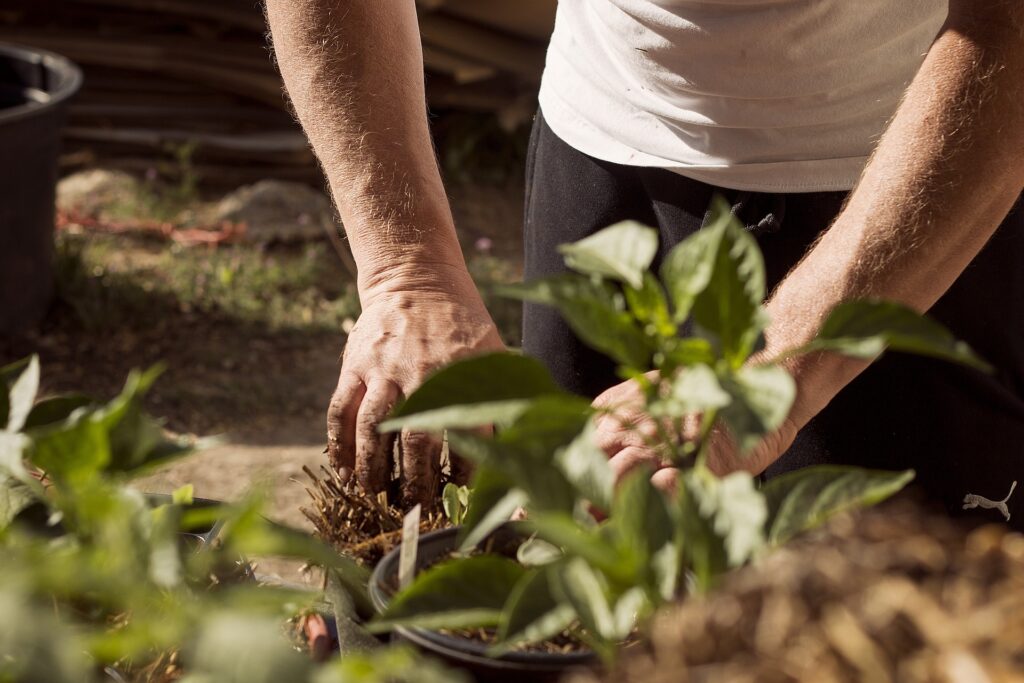If you really want to learn herbalism, stop studying.
Now that i have your attention – don’t worry – i don’t mean stop studying forever!! Studying is really important – you can’t be an herbalist just on vibes. But study time isn’t the only thing you need…
Let me explain, in three vignettes:
1. Fallow Fields
Even early farmers understood that soil can’t be productive all the time. If they planted their fields every year, eventually the fields became infertile. So they put their fields into rotation, and every year there were fields that were allowed to just rest. Often this was on a three-year cycle – two years of production, one year to rest.
The word they used to describe the resting field was fallow.
This is a super important concept, and not just for agriculture! Because the reality is: HUMANS ALSO CANNOT ALWAYS BE PRODUCTIVE!
We need down time. We need to rest!

2. Recess
Over the decades since i was a kid, recess in elementary schools has been getting shorter and shorter. Kids are in school longer, in crowded classrooms, and they get one or two 15-minute breaks – even the young ones!
But recently there’s been a lot of experimentation and study on this topic, and what they are finding is fantastic:
Kids – of all ages – who got more recess were better able to be attentive in class, and better able to retain what was taught. You can learn more about that here.
It’s not just for kids: YOU also need some recess time, so that your brain can process all the new information you’re taking in!

3. Learning is Action
When you study, that’s cerebral work. Trying to memorize all the materia medica, trying to remember which herbs are warming, and which are drying, and… it’s a lot of brainpower!
Maybe you’re analyzing health issues and trying to create herbal protocols to help them. Maybe you’re making flash cards to learn all the Latin names…
All of that work is really important! But, even if you do it all perfectly, it’s not enough to make you a good herbalist, because herbalist is something you DO.
It’s a verb.
But everyone is busy! So if all your time is filled with all the mental work of trying to learn all the details of herbalism, when are you supposed to have the time to do the ACTION work?
Ok – i’ve set the scene. Now what are we going to do about all this?
A Trimester Schedule for Herbal Study
In our school, we’ve worked to build “fallow time”, recess, and space for you to do the ACTION of learning herbalism, right into our academic schedule.
Here’s how it works:
We’ve organized the year into trimesters: three sets of four months.
The idea is that in the first three months of each trimester, students do the regular study stuff:
- watching the video lessons,
- reading texts, articles, and studies,
- participating in live Q&A sessions (or watching the archived recordings),
- attending mentorship sessions,
- working in Free Clinic and in the Student Clinic,
- and so on.
That is, this time is focused on all the “thinky work” of learning to be an herbalist.

Fallow Month
Then, in the fourth month of each trimester – what we call “the Fallow Month” – the gears shift!
We set aside the thinky work for a little while, and get really hands-on.
This is where students use their study time to DO herbalism:
- making lots of herbal medicines,
- experimenting with what they’ve learned by building – and doing! – herbal protocols for themselves and their friends & family,
- heading out to work in the garden,
- going for herb walks to practice identifying the plants they’ve been learning about,
- and suchlike.
It’s a time to let the thinky parts of our brains just rest, while we switch gears into the active parts and actually live the things we’ve been learning!
Sharing Your Experiences
In our private student community, students share the different projects they have planned for the Fallow Month – working on their gardens, creating protocols and following them, really putting into action all the things they’re learning. They share their experiments and even work together on group projects, and swap all the cool herbal medicines they’ve made. It’s really exciting! There’s a buzz and an energy, like a whole hive waking up!
We also share lots of experiments and hands-on activities in our newsletter throughout each fallow month, so that students get fun ideas for ways they can try out what they’ve learned.
Just studying all the time can make your brain a little numb, but the excitement of shifting into a more active learning mode for a while can really wake you up – and you might be really surprised to discover how much you’ve learned!
Building this into a regular cycle allows students to have the constant feedback of seeing the real life impacts of what they’re learning – and it helps all the “thinking” work stick in the brain much better!

Breaks Help You Learn
Sometimes it can be scary to switch it up, to give yourself a break – maybe you feel like if you do, you won’t go back to the “study” part of your studies. But there is so much to show us that this is actually good – that it helps us learn better and get motivated to dive deeper!
Intentionally building in breaks to work differently, to shift from thinking to doing, and even to give ourselves some time to do nothing – these are the things that give our brains the space to integrate all the stuff we’ve been studying!
If you’re looking for some immediate ideas of active things to do while you take a “brain break”, hop on over to the Herbal Study Tips course – you may already have it in your student dashboard, but if you don’t, you can grab it here for free:

Join our newsletter for more herby goodness!
Get our newsletter delivered right to your inbox. You'll be first to hear about free mini-courses, podcast episodes, and other goodies about holistic herbalism.

